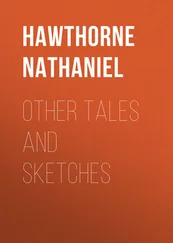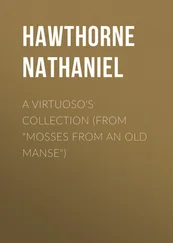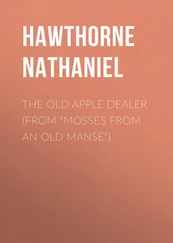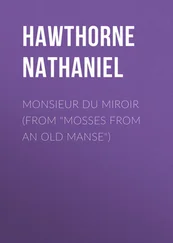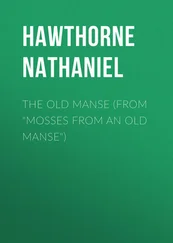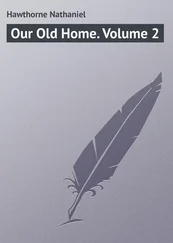Nathaniel Hawthorne - Our Old Home - A Series of English Sketches
Здесь есть возможность читать онлайн «Nathaniel Hawthorne - Our Old Home - A Series of English Sketches» — ознакомительный отрывок электронной книги совершенно бесплатно, а после прочтения отрывка купить полную версию. В некоторых случаях можно слушать аудио, скачать через торрент в формате fb2 и присутствует краткое содержание. Жанр: literature_19, foreign_antique, foreign_prose, на английском языке. Описание произведения, (предисловие) а так же отзывы посетителей доступны на портале библиотеки ЛибКат.
- Название:Our Old Home: A Series of English Sketches
- Автор:
- Жанр:
- Год:неизвестен
- ISBN:нет данных
- Рейтинг книги:4 / 5. Голосов: 1
-
Избранное:Добавить в избранное
- Отзывы:
-
Ваша оценка:
- 80
- 1
- 2
- 3
- 4
- 5
Our Old Home: A Series of English Sketches: краткое содержание, описание и аннотация
Предлагаем к чтению аннотацию, описание, краткое содержание или предисловие (зависит от того, что написал сам автор книги «Our Old Home: A Series of English Sketches»). Если вы не нашли необходимую информацию о книге — напишите в комментариях, мы постараемся отыскать её.
Our Old Home: A Series of English Sketches — читать онлайн ознакомительный отрывок
Ниже представлен текст книги, разбитый по страницам. Система сохранения места последней прочитанной страницы, позволяет с удобством читать онлайн бесплатно книгу «Our Old Home: A Series of English Sketches», без необходимости каждый раз заново искать на чём Вы остановились. Поставьте закладку, и сможете в любой момент перейти на страницу, на которой закончили чтение.
Интервал:
Закладка:
The Doctor, however, failed to make his appearance at dinner-time, or to apologize the next day for his absence; and in the course of a day or two more, I forgot all about him, concluding that he must have set forth on his Continental travels, the plan of which he had sketched out at our interview. But, by and by, I received a call from the master of the vessel in which he had arrived. He was in some alarm about his passenger, whose luggage remained on shipboard, but of whom nothing had been heard or seen since the moment of his departure from the Consulate. We conferred together, the captain and I, about the expediency of setting the police on the traces (if any were to be found) of our vanished friend; but it struck me that the good captain was singularly reticent, and that there was something a little mysterious in a few points that he hinted at rather than expressed; so that, scrutinizing the affair carefully, I surmised that the intimacy of life on shipboard might have taught him more about the reverend gentleman than, for some reason or other, he deemed it prudent to reveal. At home, in our native country, I would have looked to the Doctor's personal safety and left his reputation to take care of itself, knowing that the good fame of a thousand saintly clergymen would amply dazzle out any lamentable spot on a single brother's character. But in scornful and invidious England, on the idea that the credit of the sacred office was measurably intrusted to my discretion, I could not endure, for the sake of American Doctors of Divinity generally, that this particular Doctor should cut an ignoble figure in the police reports of the English newspapers, except at the last necessity. The clerical body, I flatter myself, will acknowledge that I acted on their own principle. Besides, it was now too late; the mischief and violence, if any had been impending, were not of a kind which it requires the better part of a week to perpetrate; and to sum up the entire matter, I felt certain, from a good deal of somewhat similar experience, that, if the missing Doctor still breathed this vital air, he would turn up at the Consulate as soon as his money should be stolen or spent.
Precisely a week after this reverend person's disappearance, there came to my office a tall, middle-aged gentleman in a blue military surtout, braided at the seams, but out at elbows, and as shabby as if the wearer had been bivouacking in it throughout a Crimean campaign. It was buttoned up to the very chin, except where three or four of the buttons were lost; nor was there any glimpse of a white shirt-collar illuminating the rusty black cravat. A grisly mustache was just beginning to roughen the stranger's upper lip. He looked disreputable to the last degree, but still had a ruined air of good society glimmering about him, like a few specks of polish on a sword-blade that has lain corroding in a mud-puddle. I took him to be some American marine officer, of dissipated habits, or perhaps a cashiered British major, stumbling into the wrong quarters through the unrectified bewilderment of last night's debauch. He greeted me, however, with polite familiarity, as though we had been previously acquainted; whereupon I drew coldly back (as sensible people naturally do, whether from strangers or former friends, when too evidently at odds with fortune) and requested to know who my visitor might be, and what was his business at the Consulate. "Am I then so changed?" he exclaimed with a vast depth of tragic intonation; and after a little blind and bewildered talk, behold! the truth flashed upon me. It was the Doctor of Divinity! If I had meditated a scene or a coup de theatre, I could not have contrived a more effectual one than by this simple and genuine difficulty of recognition. The poor Divine must have felt that he had lost his personal identity through the misadventures of one little week. And, to say the truth, he did look as if, like Job, on account of his especial sanctity, he had been delivered over to the direst temptations of Satan, and proving weaker than the man of Uz, the Arch Enemy had been empowered to drag him through Tophet, transforming him, in the process, from the most decorous of metropolitan clergymen into the rowdiest and dirtiest of disbanded officers. I never fathomed the mystery of his military costume, but conjectured that a lurking sense of fitness had induced him to exchange his clerical garments for this habit of a sinner; nor can I tell precisely into what pitfall, not more of vice than terrible calamity, he had precipitated himself, – being more than satisfied to know that the outcasts of society can sink no lower than this poor, desecrated wretch had sunk.
The opportunity, I presume, does not often happen to a layman, of administering moral and religious reproof to a Doctor of Divinity; but finding the occasion thrust upon me, and the hereditary Puritan waxing strong in my breast, I deemed it a matter of conscience not to let it pass entirely unimproved. The truth is, I was unspeakably shocked and disgusted. Not, however, that I was then to learn that clergymen are made of the same flesh and blood as other people, and perhaps lack one small safeguard which the rest of us possess, because they are aware of their own peccability, and therefore cannot look up to the clerical class for the proof of the possibility of a pure life on earth, with such reverential confidence as we are prone to do. But I remembered the innocent faith of my boyhood, and the good old silver-headed clergyman, who seemed to me as much a saint then on earth as he is now in heaven, and partly for whose sake, through all these darkening years, I retain a devout, though not intact nor unwavering respect for the entire fraternity. What a hideous wrong, therefore, had the backslider inflicted on his brethren, and still more on me, who much needed whatever fragments of broken reverence (broken, not as concerned religion, but its earthly institutions and professors) it might yet be possible to patch into a sacred image! Should all pulpits and communion-tables have thenceforth a stain upon them, and the guilty one go unrebuked for it? So I spoke to the unhappy man as I never thought myself warranted in speaking to any other mortal, hitting him hard, doing my utmost to find out his vulnerable part, and prick him into the depths of it. And not without more effect than I had dreamed of, or desired!
No doubt, the novelty of the Doctor's reversed position, thus standing up to receive such a fulmination as the clergy have heretofore arrogated the exclusive right of inflicting, might give additional weight and sting to the words which I found utterance for. But there was another reason (which, had I in the least suspected it, would have closed my lips at once) for his feeling morbidly sensitive to the cruel rebuke that I administered. The unfortunate man had come to me, laboring under one of the consequences of his riotous outbreak, in the shape of delirium tremens; he bore a hell within the compass of his own breast, all the torments of which blazed up with tenfold inveteracy when I thus took upon myself the Devil's office of stirring up the red-hot embers. His emotions, as well as the external movement and expression of them by voice, countenance, and gesture, were terribly exaggerated by the tremendous vibration of nerves resulting from the disease. It was the deepest tragedy I ever witnessed. I know sufficiently, from that one experience, how a condemned soul would manifest its agonies; and for the future, if I have anything to do with sinners, I mean to operate upon them through sympathy, and not rebuke. What had I to do with rebuking him? The disease, long latent in his heart, had shown itself in a frightful eruption on the surface of his life. That was all! Is it a thing to scold the sufferer for?
To conclude this wretched story, the poor Doctor of Divinity, having been robbed of all his money in this little airing beyond the limits of propriety, was easily persuaded to give up the intended tour and return to his bereaved flock, who, very probably, were thereafter conscious of an increased unction in his soul-stirring eloquence, without suspecting the awful depths into which their pastor had dived in quest of it. His voice is now silent. I leave it to members of his own profession to decide whether it was better for him thus to sin outright, and so to be let into the miserable secret what manner of man he was, or to have gone through life outwardly unspotted, making the first discovery of his latent evil at the judgment-seat. It has occurred to me that his dire calamity, as both he and I regarded it, might have been the only method by which precisely such a man as himself, and so situated, could be redeemed. He has learned, ere now, how that matter stood.
Читать дальшеИнтервал:
Закладка:
Похожие книги на «Our Old Home: A Series of English Sketches»
Представляем Вашему вниманию похожие книги на «Our Old Home: A Series of English Sketches» списком для выбора. Мы отобрали схожую по названию и смыслу литературу в надежде предоставить читателям больше вариантов отыскать новые, интересные, ещё непрочитанные произведения.
Обсуждение, отзывы о книге «Our Old Home: A Series of English Sketches» и просто собственные мнения читателей. Оставьте ваши комментарии, напишите, что Вы думаете о произведении, его смысле или главных героях. Укажите что конкретно понравилось, а что нет, и почему Вы так считаете.


